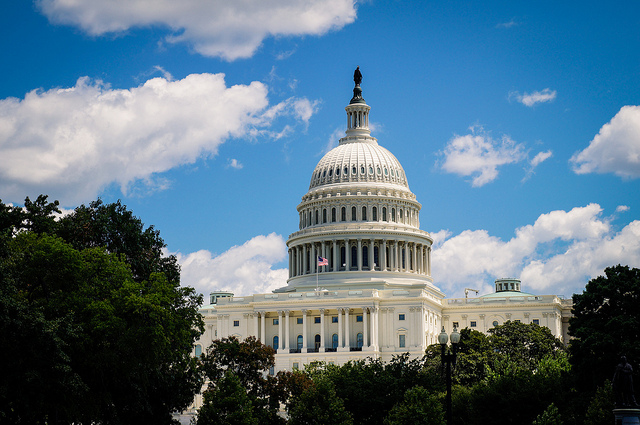
On Wednesday, September 10th, prominent U.S. businesses and defenders of American privacy sent letters to House Majority Leader Kevin McCarthy (R-CA) and Senate Majority Leader Harry Reid (D-NV) urging reform of the Electronic Communications Privacy Act, or ECPA, an issue that is gaining support on both sides of the aisle. Americans for Tax Reform and Digital Liberty support quick passage of the ECPA.
Congressmen Kevin Yoder (R-KS) and Jared Polis (D-CO) have introduced the Email Privacy Act (H.R. 1852) in order to reform the current ECPA. They are joined by over 260 Representatives, a majority of the majority, and a majority of the House Judiciary Committee in co-sponsoring this bill. Identical legislation (S. 607) in the Senate introduced by Senators Patrick Leahy (D-VT) and Mike Lee (R-UT) shows that there is widespread bipartisan support for ECPA reform across the political spectrum.
Written in 1986, the outdated and out of touch ECPA does not make clear whether the warrant standard of the U.S. Constitution applies to private digital information the same way it applies to physical documents. This is a cause of concern for millions of Americans who value keeping their online information private.
Discrepancies in the current law treat data stored locally in one’s home or office differently than that stored in the Internet “cloud.” The ECPA in its current form states that data stored in the cloud should be afforded less protection than data stored locally. This is a worrisome inconsistency that has become a cause for alarm as more and more companies and individuals store their work and information in the cloud. Furthermore, it discourages companies that use and develop cloud technology, such as Apple and Facebook, from innovating and expanding their businesses.
H.R. 1825 and S. 607 seek to bolster online security by affording cloud data the same protection as data stored locally. This protects the privacy of law-abiding Americans, while still allowing the Department of Justice to execute legal warrants. Furthermore, ECPA reform would prevent the SEC from circumventing the legal process and gaining direct access to private content held by communications service providers, a civil infringement that would further intrude upon American privacy.
Support for this legislation abounds across the ideological spectrum as well as throughout tech and advocacy groups. The Yoder-Polis bill is co-sponsored by over 260 Representatives, a majority of the majority, and a majority of the House Judiciary Committee. Chairman Goodlatte of the House Committee on the Judiciary has claimed that ECPA reform was one of his priorities. Yoder-Polis, as well as the bipartisan Leahy-Lee bill in the Senate, serves as a strong first step in securing and broadening American privacy and freedom.

